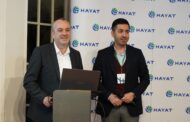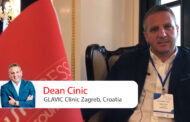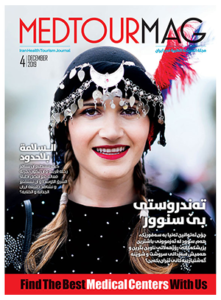A conversation with Dr. Mehrdad Behlouli, cancer and general surgery specialist
There are many different medical sciences that are recognized in Iran, and offer certain advantages that can attract medical tourists. One such medical field is that of HIPEC surgery. It is one of the most complex and lengthy manners of surgery that that Iran has proved itself to have great capacity for it. We sat down with Dr. Mehrdad Behlouli, specialist in both general and cancer surgeries, and one of the three HIPEC surgeons in Iran to discuss the subject.
Doctor, please brief us on HIPEC surgery, what it is, and how it is done.
“My main profession as of now are cancer surgeries that are done for the digestive system, and more so I work for patients with advanced digestive cancers, usually in stage four, that have cancer spread across the abdominal areas of their bodies.
These types of operations are called Cytoreduction and HIPEC surgeries. In the year 1990, Professor Paul H. Sugarbaker invented and initiated this method of surgery in the Medstar Hospital in Washington, which to this day, serves as the largest and most successful center for HIPEC surgeries worldwide.
With time the number of individuals who began practicing this operation grew, and now there are many centers that operate in this field across Europe.

In Iran the “Jam” hospital is the first center to begin conducting this method, and since 5 years ago we use this surgery to treat patients with advanced forms of cancer relating to their digestive systems. In the past some patients would be told that, due the cancer spreading all across their stomachs, there was no treatment available to them. Today these patients undergo a very complex operation. Initially the patients are subject to 7 to 8 hours of surgery, during which all the tumors that can be seen with a naked eye are removed, subsequently with a method that is known as HIPEC we conduct chemotherapy using chemical drugs for around 90 minutes all across their stomach to eradicate all the remaining cancer cells.
This method results in some of the patients being fully healed, and some others that do not, will have their lifetime prolonged. Generally this operation is quite intricate and complex, and in order for the patients to undergo this operation they must be in special conditions. That means that not all the patients that are in this stage of their disease, would benefit from this surgery. This surgery requires certain requirements and procedures, that must be checked and applied to the patient before the surgery itself.”
Doctor, considering international standards, what are the capacities for this operation in Iran? And how many surgeons and centers conduct this operation?
In total there are three surgeons in Iran that operate in this method. Me and Dr. Majid Akrami in Tehran, and Dr. Saman Nikeghbali in Shiraz, both of whom are terrific and outstanding, and could provide high quality services for medical tourists.
In order to answer about the capacity, there are a few matters that I have to point out. This operation is incredibly complex; therefore there are less than one hundred centers in the world that conduct it. Also this surgery includes a great deal of complications and accidents, which is the reason many surgeons show little interest in this field, or outright lack the ability to carry it out. I along with the “Jam” hospital have come up with a newer method called PIPEC about two years ago. There are 2 other medical centers, one in Turkey and one in Saudi Arabia that utilize this method in the Middle East.

the HIPEC world association [citation needed] has ranked the top ten centers that provide HIPEC services, the first center that is mentioned in this website is Tehran’s “Jam” hospital in Iran, for this reason we have had an influx of foreign patients visiting our Hospital.”
You mentioned the PIPEC method, what is that exactly?
“This is a new and easier method. Those patients that go through HIPEC, will have drugs relating to chemotherapy pumped to their abdominal parts through laparoscopy. The tumors will shrink over time. Many of these patients then are ready to receive the HIPEC operation that can be done for them in the future.”
How are the infrastructures and equipment relating to HIPEC operations?
“With regards to equipment we have no lackings. The only medical center in the world that benefits from four simultaneous HIPEC pumps is the “Jam” hospital. Other hospitals have one or two.”
You said earlier that there are several neighboring countries that are also working in the HIPEC field, what advantages does the Jam hospital benefit from in comparison to the centers in the neighboring competitors?
“I believe that with regards to health we should not be frugal as much as possible.
When in the field of medicine thrift plays a part, naturally the quality would suffer to an extent. We never dwell in such matters in the “Jam” hospital. That means that we use the very best and the most advanced of equipment out there; because our patients deserve to benefit from the best of services.
Many medical centers base their advertisement on their prices. If lower costs mean lower quality of outcome, I say that I don’t have a low price; I rather have a higher price and a higher quality of work as a result.
The most common theme in our advertisements is that we are of the most credible hospitals in the world to operate in this field and the top notch quality of the work we do in this area. We say to all our patients, that all that we can promise is that we will use the very best of the knowledge, science, equipment and techniques for them.
On top of that the prices for staying in Iran are very low compared to other countries. In fact the increase in the dollar value in Iran has provided a great deal of economic benefits for patients from abroad who seek this operation to travel to Iran. We are a very experienced center in this field, and more than 500 HIPEC operations have been successfully carried out in our hospital. Each of these operations takes 10 to 12 hours. So when we say 500 operations, we are talking about 5 to 6 thousand hours that were spent in the Operating theatre. In general the results and quality of our work is the best advertisement that we have to offer.”
How long should the patients who travel to Iran to receive this operation be staying in Iran, and how about the costs?
“These patients should contact us before travelling to coordinate with us. We receive their medical documents through E-mail or Whatsapp, and after checking through their documents, the initial steps will be taken towards their reception, as well as determining the date and the hour of their operation. These individuals will be hospitalized on the very first day of their arrival. The approximate length of their stay would be around a week to ten days in the hospital and subsequently a week in hotels. This timespan might be reduced or increased by a margin of a few days depending on the situation of the patient.

I mentioned that we try to have a higher quality at the expense of lower prices, however sadly due to the extremely high rate of the dollar’s value in Iran; we have the lowest rates for the HIPEC operations while having one of the best qualities. This surgery is done in Washington’s “Medstar” hospital costing nearly seven hundred thousand dollars for the patient, while in Iran this number drops to about twelve to fifteen thousand dollars, about one sixtieth of that in the USA!”
Which countries have the most number of patients requiring HIPEC operations?
“Most of our foreign patients are respectively from Iraq, Azerbaijan, Afghanistan and Tajikistan, as well as a number of European patients.
Not long ago I had an Iranian patient from the United States, which received HIPEC treatments from us in Iran. This person started a campaign to introduce our business to the Americans when he returned, without me requesting such a thing. They started the campaign themselves and now they advertise for us in America.”
What are some of the other services that you provide surrounding the HIPEC field?
“One of the activities that we oversee is education. Soon we will have a surgeon from Pakistan in Iran, in order for him to receive a one month course on the HIPEC method of surgery.
This individual contacted us through websites dedicated to HIPEC and requested for us to cooperate together.
I have also travelled overseas to different countries, and explained about HIPEC in conventions and conferences and performed the surgery in their hospitals. About two weeks ago I performed the surgery in France, also I have done this surgery in other countries such as Qatar, Azerbaijan and Turkey. In addition, since I consider the Tajiks to be of our own people, I am eager to perform the operation in Tajikistan as well, of course that’d be free of charge, as I intend to enjoy doing it. Although there has been no talks regarding this as of yet, I have done this in Azerbaijan.







